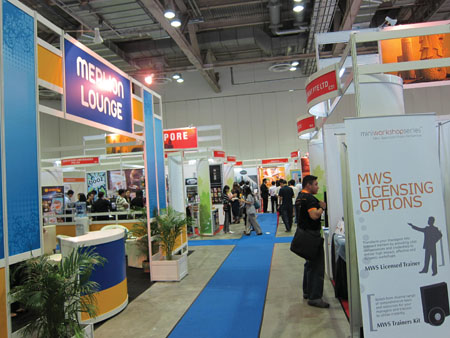By Margaret Law
Entering into a licensing arrangement can be an exciting yet detail-oriented venture. In order for both the licensor and the licensee to maximise the benefits of being in a licensing relationship, key legal aspects have to be considered prior to entering into a licensing agreement. This article aims to provide an overview of the key legal aspects to be considered when negotiating a licence.
What is a License?
In a nutshell, a licence is an arrangement where the licensor permits the licensee to use and exploit its intellectual property rights in a certain territory, in return for a royalty fee or other types of payment, for a certain period of time. The licences granted may be on an exclusive or non-exclusive basis.The ownership rights to the intellectual property concerned continue to belong to the licensor. The licensee merely receives the right to use the intellectual property within the scope of the licence.
These are some examples of licensing situations:
- the owner of a trade mark grants a licence to a licensee to use the trade mark in relation to certain goods and services;
- the owner of a patent grants to a licensee the right to use his patented invention in commercial exploitation or research and development;
- the owner of a software grants a licence to a user to use his proprietary software for private or commercial purposes;
- the author of a book grants to a publisher the right to exploit copyright in the book by publishing and selling the book;
- the owner of certain registered design rights grants to a licensee the right to use the design on certain products.

Main Advantage of Licensing
For the licensor, a licensing arrangement provides a regular source of income, usually in the form of royalty payment.
For the licensee, a licence provides the added security of using and marketing an established product with a proven track record.
Key Considerations for a Licensor
- Ownership of Licensed Product
Before entering into any licensing arrangement, the licensor should always ensure it has legal ownership of the relevant intellectual property rights to be licensed. In particular, in a situation where a third party independent contractor has been commissioned to create the intellectual property on behalf of the licensor, it is important for the licensor to ensure that the intellectual property right is properly assigned to and vests in the licensor. - Protection of Intellectual Property Rights
Before granting a licence, it is important for the licensor to ensure that his intellectual property rights are properly protected by registration. For example, if a trade mark is to be licensed to a licensee for use in relation to goods and/or services, it should be ensured that trade mark protection is sought in the correct classes of goods and/or services in the licensed territory. Such protection provides assurance to the licensor that the relevant intellectual property rights belong to him. It also enables him to protect the licensee’s commercial interests by enforcing such registered rights in the event that a third party brings into the licensed territory infringing goods and/or services.
Certain information about the licensor or the intellectual property to be licensed may be confidential in nature. It is therefore prudent of a licensor to ensure that the licensee signs a suitable non-disclosure agreement before confidential information is revealed. - Identifying the Scope of Licensed Rights
To prevent unnecessary disputes in the future, it would be prudent for the licensor and the licensee to agree on the exact scope of the licence in advance. Terms to be considered and agreed upon include the following:
– the duration of the licence;
– how and for what purpose should the intellectual property be used by the licensee;
– whether the licensee is appointed on an exclusive basis or non-exclusive basis within the territory;
– whether the licensee is allowed to appoint a sub-licensee; and
– the royalty amount and the mode of payment. - Quality Control and Appearance
Before entering into the licence agreement, the licensor should perform sufficient due diligence checks on the licensee to ensure that the licensee is capable of meeting quality standards required to be maintained by the licensor. This is a significant consideration for the licensor as the licensee’s use of the licensed intellectual property has a direct impact on the licensor’s goodwill and reputation. The aspects which the licensor may wish to check on include the licensee’s legal status, business track records and financial status.
The licensor should also make suitable arrangements to monitor and audit the licensee’s performance on a regular basis to ensure that quality standards are met.

Key Considerations for a Licensee
- Due Diligence Checks on the Licensor
Before entering into a licensing arrangement, a licensee should always ask the licensor to show evidence that he is the legal owner of the intellectual property rights to be licensed. This is to ensure that the licensor is capable of granting a licence in the relevant intellectual property rights. - Identifying the Scope of Rights and Liabilities
Before the commencement of the licence, the licensee should clearly understand the scope of rights granted to him for use and any restrictions or obligations imposed on him. This is to ensure that the licensee will not knowing or unknowingly violate the terms of the licence agreement. It is always wise to seek legal advice on the licence agreement before entering into it so that the licensee’s interests are sufficiently represented and protected. - Warranty on the Licensed Intellectual Property
The licensee may wish to request the licensor to provide a warranty that the licensed intellectual property is non-infringing of any third party’s rights. This provides the licensee with the assurance to use the licensed intellectual property with peace of mind. The financial investments made by the licensee in the exploitation of the licensed intellectual property can also be better protected.
In addition to the warranty, the licensee may also consider asking for an indemnity from the licensor to compensate the licensee for losses in the unlikely event that the licensed intellectual property infringed the rights of a third party.
Conclusion
The considerations highlighted above should be borne in mind when approaching and negotiating a licence. If the parties understand clearly their rights and obligations towards each other in the licensing arrangement even before entering into the licence agreement, the relationship between the licensor and the licensee can be beneficial and rewarding.
 Margaret Law received her Bachelor of Laws degree from the National University of Singapore in 1995. In 1998, she obtained a Master’s degree from the same university. She was admitted as an Advocate & Solicitor in Singapore in 1996. In 2000, she was admitted as a Solicitor in England and Wales.
Margaret Law received her Bachelor of Laws degree from the National University of Singapore in 1995. In 1998, she obtained a Master’s degree from the same university. She was admitted as an Advocate & Solicitor in Singapore in 1996. In 2000, she was admitted as a Solicitor in England and Wales.
Margaret is a member of Law Society of Singapore, Singapore Academy of Law, Asian Patent Attorneys Association (APAA) and European Communities Trade Marks Association (ECTA).
Margaret’s expertise lies in the area of intellectual property law. She represents a wide range of clients and regularly advises on issues concerning the protection and commercial exploitation of intellectual property. In recent years, Margaret has been actively involved in advising local Small Medium Enterprises (“SMEs”) on legal strategies to enhance business development through effective protection, management and exploitation of intellectual property. Margaret is certified as a SCOPE IP consultant by the Intellectual Property Office of Singapore (“IPOS”).
Margaret can be reached at +65-6835 7250 or email margaret@margaretlaw.com.sg. Visit: www.margaretlaw.com.sg






